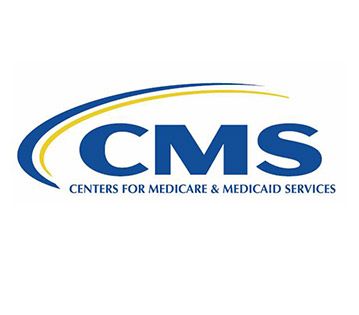ACA Repeal & Reform – What It Means for Ambulance Services
By: Tristan North and Kathy Lester, JD, MPH
This is the first of a two part Member Advisory by Tristan North and Kathy Lester on ACA Repeal & Reform. To continue reading, see Part Two: ACA Repeal & Reform – What It Means for Ambulance Services (Pt. 2).
Overview
A top priority of President Trump and congressional Republicans is to repeal and replace the Affordable Care Act (ACA). Since Republicans retook control of Congress in 2012 after passage of the ACA in 2010, they have sought to repeal the ACA. However, they had not developed a consensus on a replacement package, as they knew then-President Obama would veto the repeal bill. Now with President Trump in the White House and Republicans controlling the House and Senate, Republicans in the House have agreed upon a package and moved it through three Committees of jurisdiction: the Ways and Means Committee, the Energy and Commerce Committee, and the Budget Committee. Republicans in the Senate are less aligned and are said to be working on their own package, which is likely to differ in important ways from the House version.
For ambulance services, there are several key components to watch. These are:
- Coverage for ambulance services. Expressed in terms of providing more flexibility, there is concern that some insurers are pushing and some Republicans agree that the concept of a minimum set of covered services (essential health benefits (EHB)) should be narrowed or even eliminated. Currently, only emergency services are included as an EHB, but through the designation of benchmark plans, non-emergency services have also been covered. If the benchmark plans requirements are modified, coverage for non-emergency services could become an issue.
- Medicaid expansion. The Administration has sent a clear signal that it plans to roll back the expansion of Medicaid, which provide coverage to many Americans who had signed up under the ACA. For ambulance services in expansion States, the elimination of this program could result in more uncompensated care problems.
- Coverage more generally. Republicans have clearly indicated a desire to eliminate the individual mandate. This could have two effects that may impact ambulance services. First, if people are not required to have coverage there are many who will not have it. It is not certain whether without coverage these individuals will be able to pay for the services they receive, which could lead to more uncompensated care. Second, individuals who do not purchase health insurance often are younger and healthier. Without such individuals in the risk pool, it is possible that premiums and other cost-sharing requirements will increase making it more likely for sicker individuals who cannot afford care becoming uninsured.
- Employer costs and obligations. The House Republican legislation includes several provisions that relax the obligations and/or provide tax relief to employers providing health insurance. Such provisions could be beneficial to ambulance services in terms of providing health care coverage for their employees.
In addition, there are a few other provisions that the current bills being considered do not modify, but potential could be part of the discussions at some point or in subsequent Medicare legislation. Of these, there are three that would directly impact ambulance services.
- Productivity Adjustment. As part of the ACA, the annual inflation updates for the Medicare ambulance fee schedule rates are now subject to a productivity adjustment, which reduces the amount of the update. CMS subtracts a projection of the non-farm business multi-factor productivity adjustment (MFP) from the Consumer Price Index – Urban to determine the update amount.
- Inflation Index Below Zero. Prior to the ACA, the Medicare inflation update for ambulance rates could not be a negative percentage. Under ACA policies, the update may be a negative percentage. For example, in 2011, the CPI-U was 1.1 percent and the productivity adjustment was 1.2 percent, which resulted in a cut to the rates of 0.1 percent. In 2016, the CPI-U was 0.1 percent and the productivity adjustment was 0.5 percent, which resulted in a cut of 0.4 percent.
- GPCI Increases. The ACA made a temporary change to the practice expense component of the physician geographical price cost index (GPCI), which is the entire GPCI for reimbursement under the Medicare ambulance fee schedule. The change established a minimum 1.0 GPCI for ambulance payments from January 1, 2010, to December 31, 2010. As a result of these changes, rates under the Medicare ambulance fee schedule for localities with a GPCI of less than 1.0 saw an additional temporary increase in reimbursement rates. Localities with a GPCI of 1.0 or higher were not be affected by the provision. The provision was retroactive to January 1, 2010 and the increases escalated for 2011 before expiring on December 31, 2011.
The ACA also established a permanent GPCI floor of 1.0 for “frontier” States which took effect in 2011. The designation of a “frontier” applies to those states in which 50 percent of the counties are frontier which have less than 6 people per square mile. The designation is updated with the original frontier states consisting of Montana, North Dakota, South Dakota, Utah and Wyoming. Utah is no longer deemed frontier and Nevada has been added to the list. While a complete repeal of the ACA would not impact the temporary GPCI increases as the provisions were temporary, it would eliminate frontier status.








